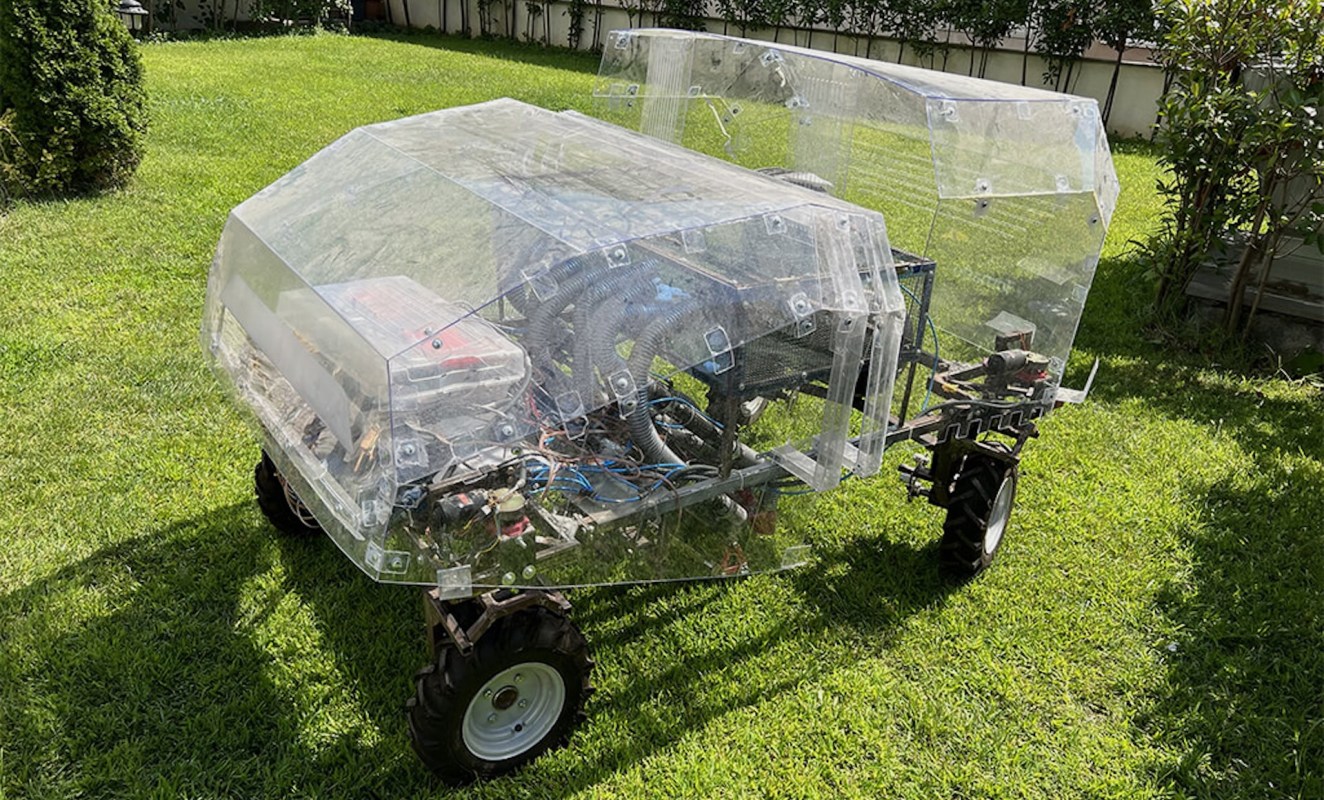Turkish startup Afara has developed a fully electric cotton-picking robot that could up farm production by 20%.
According to the company, conventional self-propelled cotton harvesters leave 5-20% of the product on plants, and the only way to harvest it is by hand — a grueling and expensive task. The new machine aims to recover all that leftover cotton from fields, and Afara claims that the machine's target picking efficiency is over 90%.
The fully autonomous cotton picker has four RGB cameras, two LiDAR sensors, and ultrasonic sensors to detect leftover cotton and navigate obstacles. It can collect about 440 pounds at a time and unload its harvest at a predetermined collection point when its onboard container is full. The robot can run for up to six hours on its li-ion battery and can be charged overnight through AC (a fast-charging DC model cuts that to 1.5 hours).
These machines will help prevent agricultural waste and save resources. Cotton is already a water-intensive crop, taking about 713 gallons just to produce one T-shirt, according to The World Counts.
Plus, its electric design makes it a safer alternative to gas-guzzling harvesters, which pollute our air and contribute to the warming of our planet. Moving away from fossil fuel-powered machinery and vehicles can help us avert the worst consequences of an overheating planet, protecting us from extreme weather events and helping to preserve our food supply.
Afara's invention is one of many incredible agricultural developments that are helping us increase productivity and save resources. For instance, one company says its vertical growing system yields 350 times more produce than a conventional farm's acre and saves a substantial amount of water.
In a quirkier strategy, researchers in Vermont are looking at using human urine as a more planet-friendly way to fertilize crops. While it may seem gross, conventional fertilizers can cause major health problems and contribute to rising global temperatures.
Afara is expected to debut its cotton-collecting robot at around €120,000 (about $130,614). The company will also be releasing a peanut picker model.
Join our free newsletter for weekly updates on the coolest innovations improving our lives and saving our planet.









